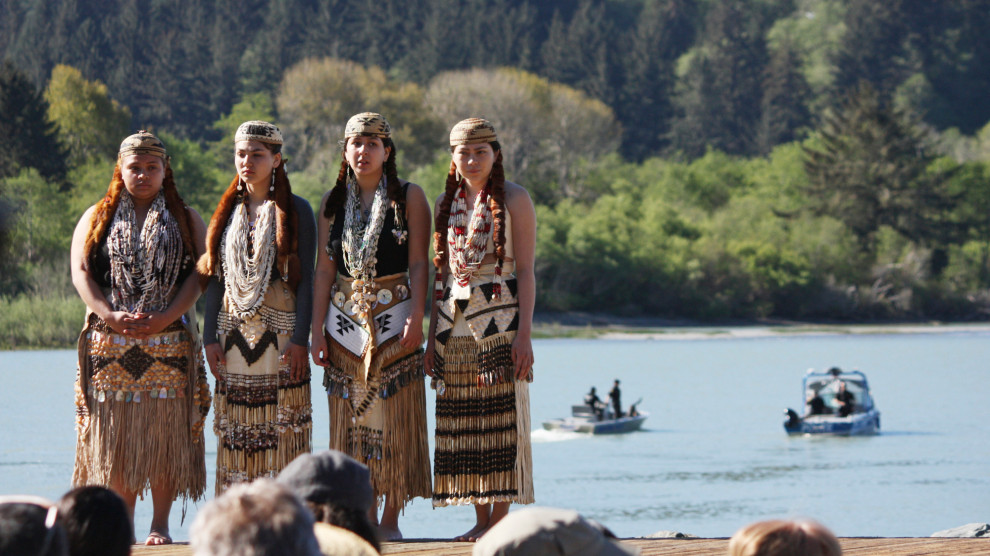A Yurok Tribe resolution allows cases to be brought on behalf of the Klamath River as a person in tribal court
This article by Anna V. Smith was published in Mother Jones magazine on September 29, 2019.
This story was originally published by High Country News and appears here as part of the Climate Desk collaboration.
This summer, the Yurok Tribe declared rights of personhood for the Klamath River—likely the first to do so for a river in North America. A concept previously restricted to humans (and corporations), “rights of personhood” means, most simply, that an individual or entity has rights, and they’re now being extended to nonhumans. The Yurok’s resolution, passed by the tribal council in May, comes during another difficult season for the Klamath; over the past few years, low water flows have caused high rates of disease in salmon, and cancelled fishing seasons.
With the declaration, the Yurok Tribe joins other Indigenous communities in a growing Rights of Nature movement aimed at protecting the environment. Last year, the White Earth Band of Ojibwe adopted the Rights of Manoomin to protect wild rice—manoomin—and the freshwater sources it needs to survive in Minnesota. And in 2017, the New Zealand government adopted the Rights of the Whanganui River, stemming from a treaty process with Māori iwis, or tribes, that gives the river its own legal standing in court. “By granting the rights of personhood to the Klamath River, not only does it create laws and legal advocacy routes, but it’s also an expression of Yurok values,” says Geneva Thompson, associate general counsel for the tribe and citizen of the Cherokee Nation, who worked on the resolution. “The idea is that the laws of a nation are an expression of the nation’s values.”
(To read the rest of this story please click HERE.)

